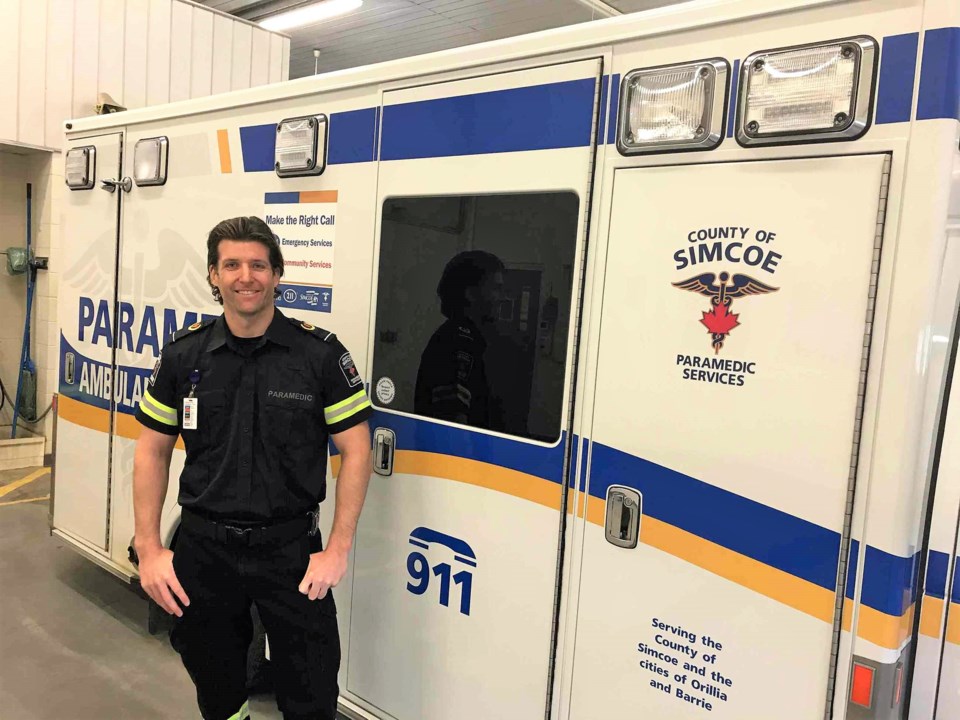What's it like to work on the front lines during a pandemic?
“For me, I’m not so much concerned with my personal or physical health, given that I’m relatively young with no other factors or illnesses that would increase my chances with this virus, but I do have concerns for my family,” said Brad Campbell, a paramedic with the County of Simcoe Paramedic Service.
“My father is in his late 60s and has some cardiac issues, so I’ve avoided all contact with him since this started. It’s been difficult," he added. “Those kinds of things are a bit stressful, but I think taking measures at work to protect myself... I’m relatively comfortable."
Campbell has worked as a front-line paramedic with the County of Simcoe for 15 years.
“Before, we had some similar infection control (protocols) in place, but it’s kind of been ramped up with this,” said Campbell.
Now, Campbell says he gets his temperature taken to see if he has any COVID-19 symptoms before being allowed to start work daily.
“For every call we go on now, we wear surgical masks, goggles and gloves, where in the past we just wore gloves,” he said.
Campbell says screenings are also done on every patient paramedics make contact with, whether or not they have COVID-19 symptoms. Depending on those screenings, sometimes Campbell says paramedics will don additional personal protective equipment (PPE), such as gowns and face shields.
“Right now, every patient we come in contact with has the potential to have COVID,” he said. “We’re seeing a lot of concern from people in the community that they might have COVID, and what their symptoms mean.”
Campbell says he’s heard from many patients they are worried about going to the hospital at all because they are afraid of catching the virus.
“From what we’re seeing, everyone is taking it very seriously. What we’re hearing from people is they’re very anxious and concerned. There’s a lot of worries about the uncertainty of the situation,” he said.
“In my experience, people are a lot more hesitant about seeking treatment in emergency rooms right now,” said Campbell. “There are more people who want to be assessed or treated by us and are asking if they should go. We do want people to call us, and we’ll make sure they receive appropriate medical attention.”
Campbell says paramedics have been so grateful for all the community support they’ve seen from residents.
“We’ve had people drop things off at the station like cards, food or gift cards. People have held up banners supporting health-care workers. That’s been great. I know everyone really appreciates that,” he said.
“It’s fantastic to see that support from the community,”
